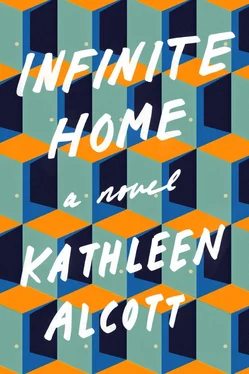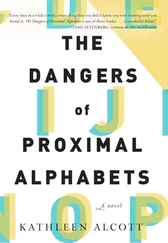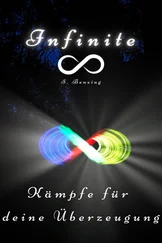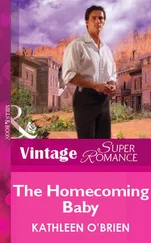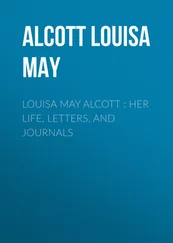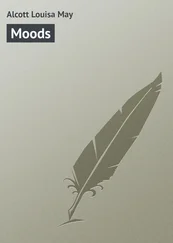Paulie squealed and Edward panicked, but the source of the cry was not the wound on the kid’s palm. It was the thing , its DVD cover: the leading man in the Santa hat, the beauty struggling with her holiday accoutrements, the character actor with the busy eyebrows. Edward had been sure he’d hidden it.
“My favorite !” Paulie said, his whole face open with joy. Instead of taking the case from him, instead of suggesting another film, Edward admitted what he’d sworn never to again.
“ Santarella ?” he said. “I wrote that.”
The bubbly pleasure drained from Paulie’s face. He looked at Edward like tourists look at the Mona Lisa , searching and wary as they wait to be touched by glory.
“Eddy,” he said. “ What ?”

THERE WEREN’T WORDS for it like there are now, weren’t aisles in bookstores where people dog-eared pages that suggested the roots of their psychic pain, where they grubbily fingered titles offering recovery; there weren’t these cloying instructions that led a person directly from guilt to forgiveness, as though taking one left, then a right. Edith simply saw what she saw, shortly before evening in October of 1960, and never forgot.
Jenny, on the bed, ten years old, her reddish hair gilded by the late afternoon. Her treasured gingham skirt — the one she had rushed to in the store, buried her face in and begged for — pushed up in the most hideous way, crumpled like dead things are. Owen’s hand over hers, her freckled knuckles lacking their typical pink, his face dropping onto hers like a hammer onto a wall, the noises like kissing but also not, as though something were being excavated. Edith stood there absorbing the unclean smell, the color of Jenny’s face made wild and blotched, the twitching mobile of cutout trees hanging above her for which she was already too old.
Edith had not yelled, or rushed over to the bed and lifted her son from his place on her daughter, or beat her fist on the door to protest the quiet in a room meant to be filled with the babble of children. She gave an insignificant sound, one as echoless and quickly spent as that of a bird leaving a fence. Year after year she would remember this, how opening the door had let in a crack of hall light that divided her vision of her children, its beam separating the boy from the girl; how Owen had simply slipped off the bed and past her where she stood in the doorway. Edith went to Jenny on the bed and pulled down the hem of her skirt, patted the pleats in place, and held her, determined, like algae clinging to a sea-beaten rock.
Back in the kitchen, there was a water-dappled bunch of spinach in the sink, and chicken defrosting on the counter, and breadcrumbs to coat it in, and cornbread batter to mix, but Edith couldn’t bring herself to the task of preparation. Her attempts at the small and precise work of it failed, and that evening she and her family went out to eat. She slid into the diner’s red vinyl booth after her daughter and gripped the overstuffed cushion under the table while Declan told a long and familiar story, pausing to laugh and stroke his son’s hair. Appetizers in red-checked waxy sheets and Coca-Colas with paper straws and hamburgers and desserts appeared and vanished, and they all drove home in her husband’s bouncy station wagon, and only after all this did she tell him.
He dismissed it outright, even laughed. “But Owen’s younger ,” he said. He told her that children learn and play in all kinds of ways, and that possibly, probably, she had just stumbled in at the wrong minute. “What are you accusing him of, exactly? Kissing his sister? Aren’t you always worried about them getting along? They’re our children, honey,” he said. “Remember? We made them. They can’t be too bad.” And he winked, and kissed her forehead. When she didn’t loosen, stayed tense and wouldn’t turn to him with her normal happy sigh after he snuffed the tobacco light of the standing lamp, he returned to her comfort. “Edith,” Declan said, in his thick accent that seemed to brighten dark subject matter, “what was Jenny doing when you walked in? Didn’t you say yourself she was still? Didn’t you say she wasn’t even crying?” In the dark, Edith nodded, rolled over to think under the scant light seeping in from the street. She reasoned herself away from worry and back to it, the flight of her thoughts as panicked as bugs moving towards brightness. It was true that Jenny hadn’t been giving any of her brother’s affection back, and also true that she was a child who lived most hours deep inside herself. Edith had visited her at school, watched her blinking on the periphery, untouched by offers of jump rope or jacks, content to balance on the beam that divided the playground’s concrete and sand, one foot raised a few inches, her arms spread.
Edith spent the remaining years with Jenny in pursuit of understanding. She accompanied her on long walks, let her lead the way through industrial areas and under overpasses, stupefied by the hours her child could spend entertained in this way. She helped her build her collection of buttons, the vivid jars that spread on Jenny’s windowsill and that she fixated on before falling asleep. She took her to films, felt no greater joy than when she heard Jenny gasp at the lush colors of Douglas Sirk. Though it gnawed at her, the question of what had happened in that room, that Jenny and Owen remained as distant as passengers on the same train, there were comforts, also: Jenny perched on the toilet, watching Declan as he shaved, transfixed. The sudden, unrelenting pressure of Jenny’s sharp forehead on the small of her back while she stood on the subway or chopped vegetables, a way of saying hello. When these reassurances arrived, brief as they were, she leaned into them, rested there.

PAULIE’S SISTER, CLAUDIA, who cloaked her significant height in tailored beige pants and bland gold accessories, had found him the place just around the corner from hers. Her husband didn’t think— well, how could he put this —that it would be best if they all lived together. The other tenants nodded at her on her daily visits, as she balanced bags of groceries on her hips and adjusted the leather bag that was permanently cutting into her left shoulder. Paulie was enthused to see her every time: he liked to clap his hands to his face, then to hers. She had to remind him to save the hugs for after she had brought the various bags and packages inside, and he’d recall that, yes, one time he had been so glad to see her that he’d accidentally sent a watermelon bouncing down the stairs. (He’d thought it looked lovely, he had told her, at home in flight, like the blimps that used to hover over the freeway when he and their father went on long drives just for the sake of the radio and the wind.)
Despite being exhausted from long hours in a corporate public relations job she had hid in for years, despite sometimes requesting that Paulie speak a little more softly, Claudia made sure her brother knew he was loved, knew he was seen. She listened to his new songs repeatedly and told him the parts she liked best, she took his dirty laundry from the sloping piles on his bedroom floor and brought him hand soaps that smelled, as per his preference, spectacularly of pomegranate. On the weekends, they took the subway — Paulie loved the hurtle, the bright orange seats, the light in the tunnel present long before the train itself was visible. It was everything she could do to keep him from striking up conversations with all the people clearly taking refuge in the urban privacy of the C or D train, but watching him ascend joyfully towards the skyscrapers of Manhattan was worth it. They went to the Bronx Zoo, where Paulie observed that the giraffes must have been made by someone talented but distracted. He delighted in the New Museum, the exhibits one could touch, and rushed to the flashing interactive electronics, the video art, the generous plush headphones. They lay in Central Park, exhausted, where he confessed to her that to him, horse poop smelled friendly , somehow. “Think about it. Is there any other poop that says hello like that?”
Читать дальше
